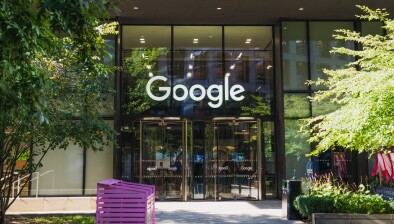CJEU: General Court upholds €2.4 billion fine against Google for abuse of dominant position in European market

The Court of Justice of the European Union (CJEU) has upheld an EU Commission decision to fine Google €2.4 billion for breaches of competition law. It was held that Google had abused a dominant position in the European market by favouring its own comparison shopping service over competing comparison shopping services on its search engine.

About this case:
- Citation:Case T‑612/17
- Judgment:
- Court:CJEU
The General Court held that the manner in which Google promoted its own shopping service over its competitors was anticompetitive and held that this had a harmful effect on competition within the single market. Further, it was held that there was no objective justification for Google’s practice and, accordingly, the Commission’s decision was correct.
Background
In 2009, a number of undertakings complained to the Commission about Google’s favourable treatment of its own shopping service in its search engine compared to other services. By 2015, the Commission had adopted infringement proceedings against Google on the basis that it had abuse a dominant position in the marketplace contrary to Article 102 TFEU.
In 2017, the Commission adopted a decision known as “Google Search (Shopping)” in which it was determined that Google had breached Article 102 TFEU in 13 EU countries. Specifically, it was said that the results of product searches made using Google’s general search engine were positioned and displayed in a more eye-catching manner when the results came from Google’s own shopping service than when they came from competing shopping services.
Further, it was found that competing shopping services only appeared as simple generic results (known as blue links) and were “prone to being demoted by adjustment algorithms in Google’s general results pages.” The adjustment algorithms were not applied to Google’s shopping service.
As such, the Commission decided to fine Google €2.4 billion for the infringement, with its parent company Alphabet jointly liable for €523 million. Google appealed the decision to the General Court of the CJEU.
It was argued that Google’s practice provided quality improvements in its online search service and that the Commission did not identify any elements of those improvements which amounted to anticompetitive practice. Further, it was said that the Commission was in fact imposing “a duty to supply” on Google on the incorrect assumption that Google’s services were an essential facility (See Bronner, Case C‑7/97).
It was also argued that Google’s practice was not actually discriminatory on the facts and that the Commission had erred by concluding that Google had favoured its own service. Google claimed that the Commission had failed to demonstrate material consequences for the allegation that Google had altered online traffic and therefore the anticompetitive effects on the relevant market were not proved. Further, it was argued that there were objective justifications for the practice.
General Court
The General Court began by noting that, although Google had a dominant position in the European market, this did not mean that it was inherently anticompetitive. However, it was held that Google’s promotion of its own shopping service while relegating its competitors via algorithms was anticompetitive on the merits.
The factors underlying this conclusion included 1) the importance of user traffic to comparison shopping services, 2) the behaviour of users, who tended to click on first few links and 3) the large proportion of diverted traffic that could not be replaced for competitors.
The court went on to consider Google’s submission that the Commission decision imposed a duty to supply to its competitors. The court held that the nature of Google’s general search engine had the characteristics of an essential facility because it could not be easily substituted by competitors in an economically viable manner. However, the court held that Bronner did not need to be applied in every case relating to access to a facility and, in reality, the real issue was Google treating its competitors differently to its sole benefit. Accordingly, the Bronner judgment was not relevant to the case.
It was held that Google’s treatment of shopping services was dependent on the origin of the search result, meaning that, in practice, competitors could never get similar preferential treatment even if the competing result was more relevant. As such, the court rejected the submission that Google was producing better results by its practice.
It was held that the Commission was correct in its assessment of the harmful effects of Google’s practice on competition. It was noted that the Commission considered the combined effects of Google promoting its shopping service while also providing poor placement for competitors’ results. The overall effect was that Google received an increase in traffic to its service while competitors received an overall decrease.
The court reiterated that a breach of Article 102 could be established merely by demonstrating that the conduct is capable of restricting competition. As such, the Commission was not required to identify actual exclusionary effects on the market. It was held that the Commission’s methodology was sufficient to outline that Google’s practice could have weakened competition by removing competitors and creating less choice for consumers.
The court rejected Google’s submission that competition remained strong because there were also merchant platforms on the market. It was held that those merchants were not operating in the same shopping service market. They did not offer services under the same conditions and internet users interacted with merchants on a different basis, the court held.
However, the court held that the Commission was incorrect to find that Google’s conduct had anticompetitive effects on the general search engine market. Accordingly, that aspect of the decision was annulled.
The court held that there was no objective justification for Google’s conduct. While it was possible that algorithmic ranking of generic search results could have procompetitive effect, it did not justify the favourable treatment given to Google’s service over its competitors. Further, it was said that Google failed to demonstrate that the anticompetitive practice was outweighed by efficiency gains.
Conclusion
Finally, the court held that the Commission was correct to impose a fine on Google for the conduct. It was held that the annulment of part of the decision should have no effect on the €2.4 billion fine. This was so because the Commission had not taken the value of sales on the generic market into account when levying the fine. Further, the breach in this case was particularly serious and represented an intentional act by Google.









